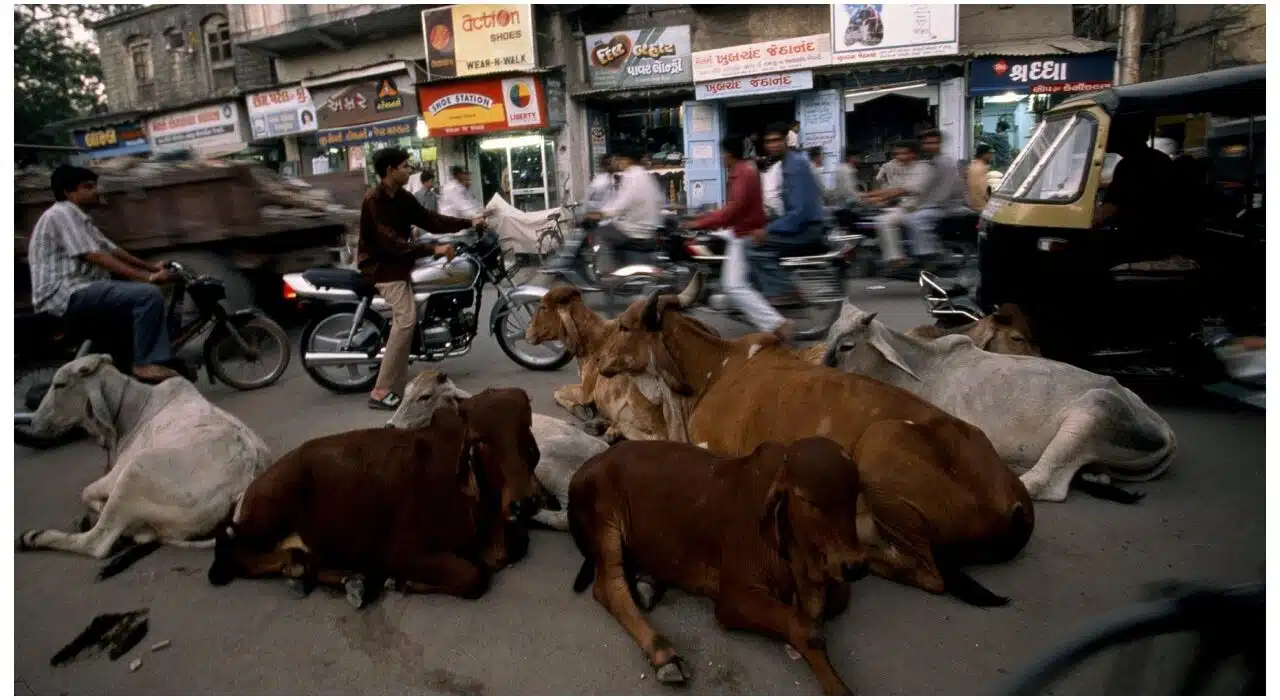The beef ban in India has always been a controversial topic, influencing political, cultural, and economic debate in the country. Following the recent beef ban in Assam, which forbids the selling of beef in public places such as restaurants and functions, the question of beef regulation is reignited.
Although India is one of the top producers and exporters of beef worldwide, beef consumption continues to be a contentious point due to the entanglement of religion and culture.
Here’s a complete breakdown of the beef ban in India, its history, and the current state of regulations across the country.
Understanding the Beef Ban in Assam
Recently, the Assam government has extended the Assam Cattle Prevention Act 2021. Earlier, the act restricted the sale of beef near religious sites, such as temples. The most recent amendment prohibits the consumption of beef in public, such as in restaurants and public gatherings. Yet, domestic consumption of beef is allowed in private houses or in private premises.
The beef restriction in Assam illustrates the complexity of the problem in a country in which 80% of the population is Hindu and the cow is venerated. Whereas some areas of India are used to consumption of beef, as it is offered for sale and consumption in Assam it is demonstrated that the consumption of beef has been rising diet restrictions.
States Where Cow Slaughter Is Prohibited
At present, 20 of 28 Indian states are enacting or have enacted legislation prohibiting the slaughter of cows or the sale of beef. These states include Uttar Pradesh, Gujarat, Rajasthan, and Maharashtra. They prohibit the slaughter of cows but permit bulls and in some cases, buffaloes.
States Permitting Cow Slaughter
There are states and Union Territories without any restrictions on cow slaughter. These are Kerala, Goa, West Bengal, and most northeastern states (Meghalaya, Mizoram and Nagaland). This reflects the diversity of dietary practices in India.
Why Is the Beef Ban Not Uniform Across India?
The legal status of cow slaughter is different across states depending on the Indian federal structure. State legislatures have sole power to legislate in areas such as cattle slaughter.
In certain states, slaughter is allowed under very specific conditions, for example, having the ability to obtain a “fit-for-slaughter” certificate. This certificate considers factors like the age, economic viability, and utility of the cattle.
India’s Role in Global Beef Production and Export
Notably, although there are internal limitations, India is one of the key actors in the global beef market. In 2022, the country produced 4.35 million tons of beef, ranking as the fourth-largest producer worldwide. It is also the third largest exporter of beef, mainly because of its carabeef (e.g., water buffalo meat) exports.4.
Vietnam continues to be India’s largest beef trading partner with other Asian and Middle Eastern countries ordering substantial quantities of beef.
Regional Beef Consumption Patterns
India consumed over three million metric tons of beef and veal in 2023, making it the fifth-largest consumer globally. Nevertheless, consumption patterns change across the Indian regions and religions.
Hindus, particularly high-caste groups, traditionally avoid beef. In the meantime, beef is still consumed by Muslims, Christians, and Dalits as part of their daily diet. Northeastern and coastal states, in which beef is integral to the local diet, are in stark contrast to northern and central states that outlaw it (for the sake of its alleged economic impact).
History of Cow Protection Laws in India
Cow protection has been debated since India’s independence. While drafting the Constitution, a code was disciplined in the Directive Principles of State Policy to serve the welfare of cattle. This directive urged states to improve cattle breeds and prohibit the slaughter of milch and draught cattle.
Over the years, multiple bills attempting to implement a nationwide beef ban in India have been introduced in Parliament but none succeeded in establishing a uniform law.
Beef Ban and Politics
The beef ban has always been a politically sensitive matter. The government in 2017, in office under the BJP, enacted a ban on cattle slaughter and sale using the Prevention of Cruelty to Animals legislation. However, the Supreme Court suspended this decision, allowing the beef and leather industries to operate without interference.
The problem remains contentious, with religious beliefs, local customs, and economic motivations frequently in conflict.
Last Words
The beef ban in India is the meeting point of culture, religion, and politics. Although laws such as the recent ban on beef in Assam testify to an increasing curtailment, the variation of laws and practices illustrates the Indian social and regional heterogeneity.
It is too early to tell if the country will ever have a national law on the matter, but the debate over beef bans will continue to be a focal point of Indian socio-politics.
Also, see: Prime Minister Narendra Modi slams Congress while addressing Lok Sabha
